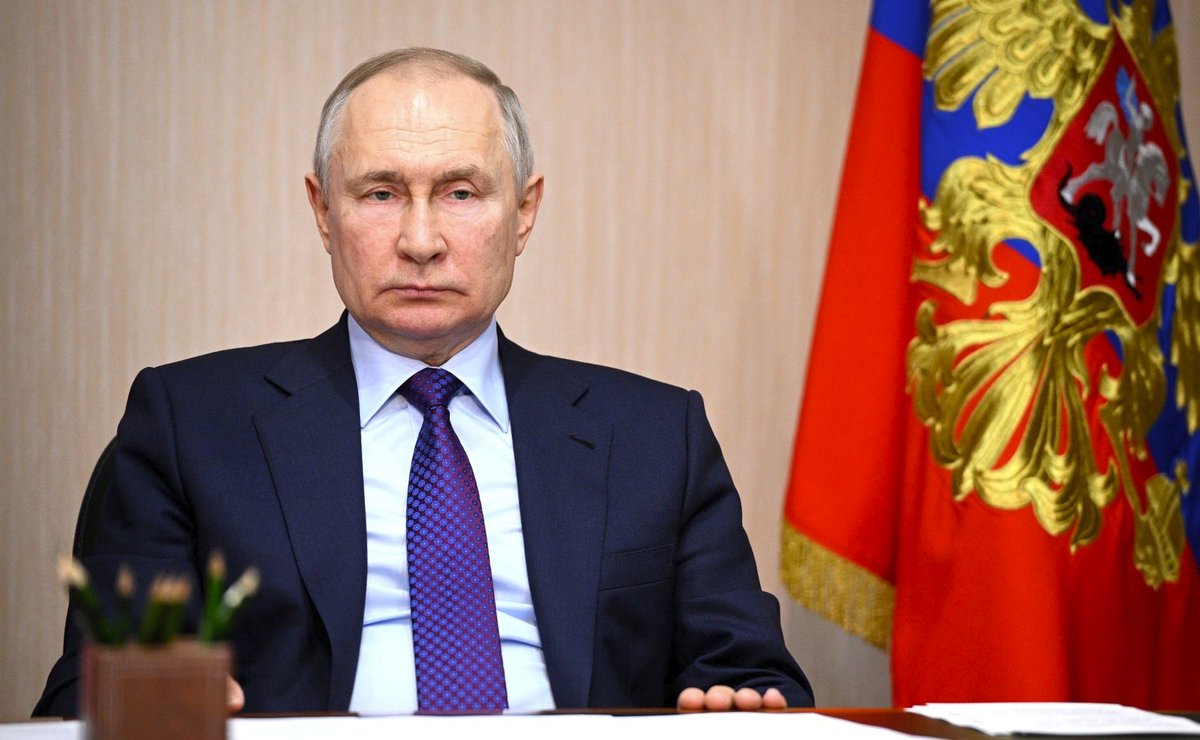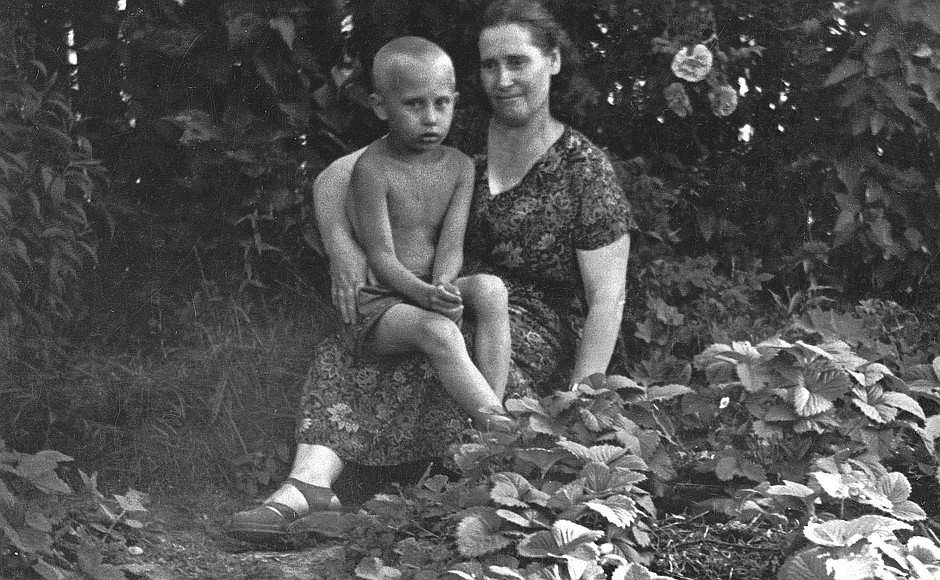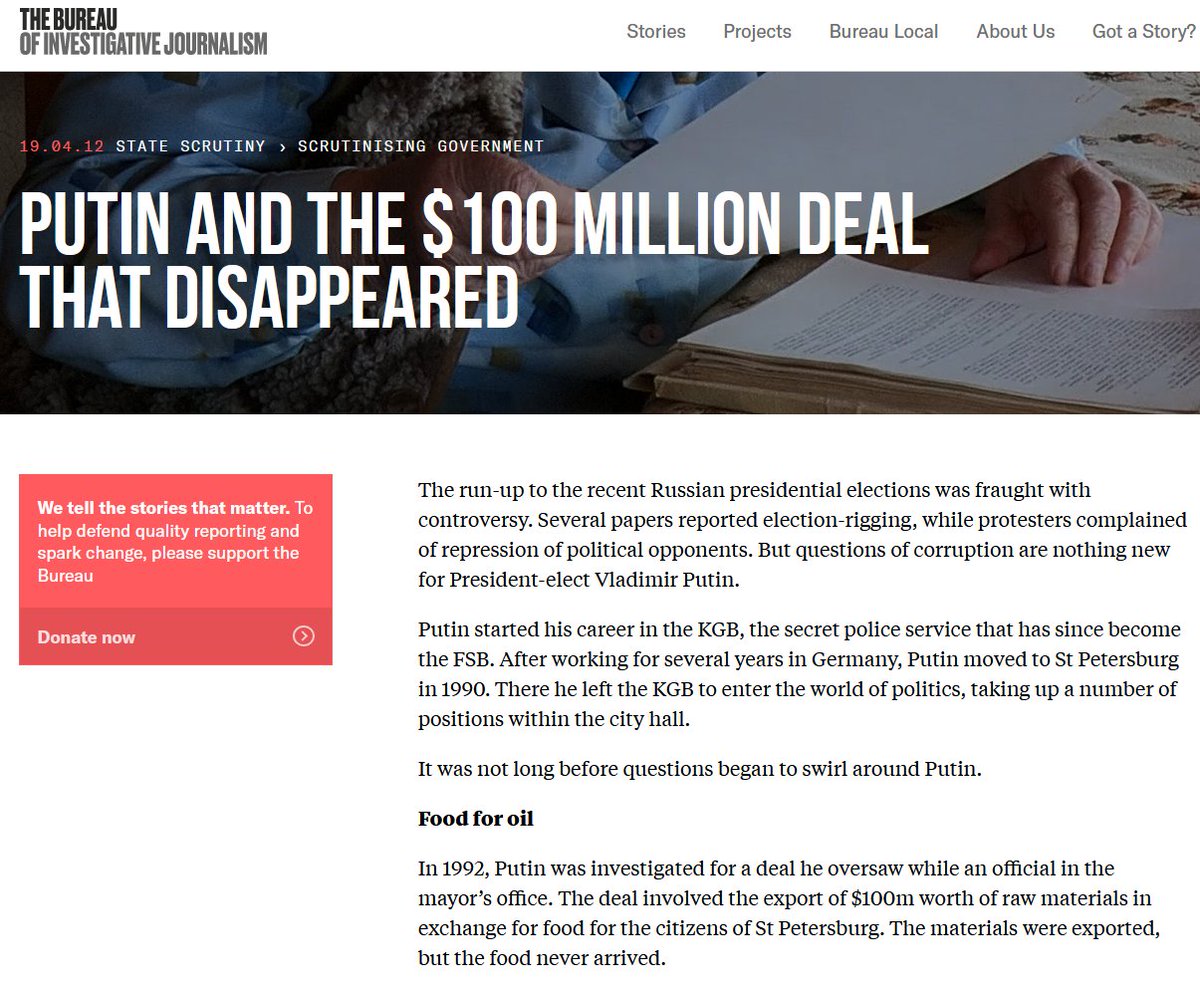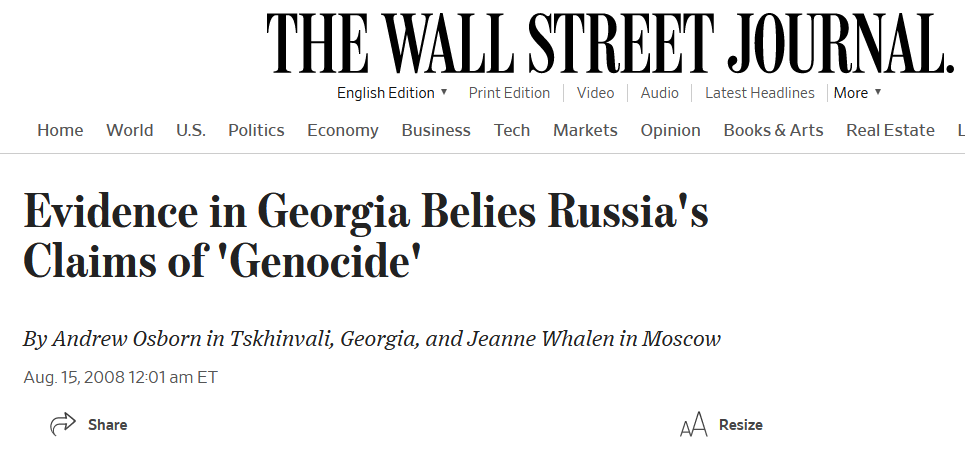In today's #vatniksoup, voted by you, I'll introduce a Russian politician and president, Vladimir Putin. He's best-known for turning Russia into a totalitarian state, and for waging war in Chechnya, Georgia, Syria and Ukraine.
Grab a coffee, this one's long.
1/
Grab a coffee, this one's long.
1/

Putin's family was molded and devastated by WW2 (or The Great Patriotic War as they call it in Russia) - his younger brother died of starvation in 1942, during the siege of Leningrad, his father served in the destruction battalion of the NKVD.
2/

2/


His grandmother was killed by the Germans in 1941 and two of his uncles disappeared on the Eastern Front. Georgian Woman called Vera Putina claimed that she Vladimir was her son, but this was denied by the Kremlin. Putina died on 31 May 2023.
3/

3/


Putin joined the KGB in 1975. His first job was in counterintelligence, where he monitored foreigners in Leningrad. Multiple reports suggest that at some point Putin worked as a spy in New Zealand under the guise of a shoe salesman.
4/

4/


From 1985 he worked in Dresden, East Germany. His work there is a topic of controversy: @mashagessen wrote in their biography of Putin that he was mostly collecting useless information, whereas @CatherineBelton suggested in 2020 that this was merely a smokescreen, and that..
5/
5/

...he was actually involved in coordinating support for the anti-Western, far-left and terrorist Baader-Meinhof Group.
In 1990, Vladimir Vladimirovich started working for his old buddy and mayor of Leningrad, Anatoly Sobchak. A year later, he was investigated by the...
6/


In 1990, Vladimir Vladimirovich started working for his old buddy and mayor of Leningrad, Anatoly Sobchak. A year later, he was investigated by the...
6/



...city legislative council for exporting metals worth 93 million USD in exchange for food aid that never arrived. The investigation was led by Marina Salye, but was eventually stopped by Putin's buddy, Sobchak. Salye was then forced to leave St. Petersburg.
7/
7/

In 1996,Putin moved to Moscow where he was quickly employed by Boris Yeltsin.He also finalized his dissertation -something that every young rising official in Russia traditionally does.The thesis was plagiarized & 15 pages of it were copied directly from an American textbook.8/ 

In 1999, Yeltsin's health had been deteriorating for a while, and the oligarchs and Yeltsin family started looking for his successor who would agree not to prosecute them for corruption.
Putin was an anonymous bureaucrat who had spotless reputation and experience in ...
9/
Putin was an anonymous bureaucrat who had spotless reputation and experience in ...
9/
...tradecraft, so they chose him. First Yeltsin appointed Putin to lead FSB, Russia's primary intelligence organization and the successor of KGB, and later he made him the prime minister. Soon after the Yeltsin loyalist and the oligarchs started heavily funding Putin's...
10/
10/
...campaign for presidency, and in Dec 1999 he replaced Yeltsin. Few months before, FSB had allegedly orchestrated a false flag attack where they bombed apartment blocks around Russia, killing 300.
11/
https://twitter.com/P_Kallioniemi/status/1624853642846121984
11/
Putin's campaign was organized by "political technologists", who turned Russian politics into avant-garde theater, where no one was sure what was real and what was fake. This same strategy was later replicated on social media by organizations like Yevgeny Prigozhin's IRA.
12/
12/
Putin's first major challenge came in Aug 2000, when he was criticized for mishandling the Kursk submarine disaster. As is tradition, Russians blamed NATO for the incident, but the families of the crew were skeptical about this. Russian authorities had also initially...
13/
13/
...denied any help from Western countries. Putin later met with these family members, who attacked Putin relentlessly, and one of the mothers, Nadezhda Tylik was sedated and carried out from the event.
14/
14/
Putin soon realized that waging war and being aggressive makes you popular in Russia, so he did just that. During his second presidential term, he also prosecuted his political enemies like the oligarch Mikhail Khodorkovsky, who spent almost a decade behind bars, and...
15/
15/

..murdered and imprisoned journalists who looked too closely into his politics. Some of these include Anna Politkovskaya, who reported about the Chechen War and was a harsh critic of Putin and FSB.
16/
https://twitter.com/P_Kallioniemi/status/1635619867704324096
16/

During the same year, former FSB officer and defector Alexander Litvinenko was poisoned to death in the UK with radioactive polonium-210. Litvinenko had attacked Putin, even going as far as claiming he was a pedophile, and fled to the West in 2000.
17/

17/


In 2007, at the Munich Security Conference, Putin complained about NATO expansion and warned the West about the consequences. Political scientist Andrew A. Michta, Western leaders failed to recognize the speech as "a declaration of war on the West."
18/
18/

The speech also marked the beginning of Putin's "economic war" on the West: bylinetimes.com/2023/01/20/rus…
Russo-Georgian relations began to deteriorate around 2003 after Georgia elected a pro-Western government. In Apr 2008, NATO promised to consider Georgia's bid for...
19/
Russo-Georgian relations began to deteriorate around 2003 after Georgia elected a pro-Western government. In Apr 2008, NATO promised to consider Georgia's bid for...
19/
membership, and some months later the Russian-backed South Ossetian forces started shelling Georgian villages. Russia falsely accused Georgia of "genocide" and launched their "peace enforcement" operation. Some years later they used similar tactics in Eastern Ukraine...
20/

20/


...with their "genocide in Donbas" accusations, funding of pro-Russian separatists, deploying mercenaries like Igor Girkin in Ukraine, and finally conducting their "special military operation" in Ukraine.
21/
https://twitter.com/P_Kallioniemi/status/1611980244252258304
21/
Between 2011 and 2013, Putin faced countrywide protests and accusations of election fraud. Up to 20 000 protesters took over the streets of Moscow, with the Russian feminist group Pussy Riot and opposition leaders like Nemtsov and Navalny leading the group.
22/


22/



For a long time, Kremlin had been worried about the "color revolutions" that had been taking place around the world, and because of this, Putin organized his own "anti-Orange" rally with around 130 000 supporters. Many of them were allegedly paid or forced to take part,...
23/
23/

...and some of them thought they were participating in "folk concert". Around the same time, Russia started its online propaganda operations, attacking the Russian opposition and later Ukraine and the West. Putin also got rid of the main opposition figures, murdering...
24/
24/

Nemtsov in 2015, and poisoning and later imprisoning Navalny in 2021.
Then in 2013 the Revolution of Dignity happened, after which Putin lost control of Ukrainian political power. Russia had been funneling money to support the separatist movement and its favorite...
25/

Then in 2013 the Revolution of Dignity happened, after which Putin lost control of Ukrainian political power. Russia had been funneling money to support the separatist movement and its favorite...
25/


...pro-Kremlin politicians in Ukraine, but the people had grown tired of the corruption and wanted Ukraine to become closer to the West.
This quickly led to the annexation of Crimea. At the time most of this was ignored by the Western audiences,...
26/
https://twitter.com/P_Kallioniemi/status/1635211581868085250
This quickly led to the annexation of Crimea. At the time most of this was ignored by the Western audiences,...
26/

...as Russia was organizing the 2014 Winter Olympics in Sochi. It was later discovered that Russia had a state-ran doping program and basically all of their athletes were involved.
bylinetimes.com/2023/06/08/you…
27/
bylinetimes.com/2023/06/08/you…
27/
The late Senator John McCain was one of the few, who actually predicted what Vladimir Vladimirovich was up to. This BBC HARDTalk interview is from Sep 2014.
28/
28/
In Oct 2015, Russia started deploying its troops into Syria, where they fought on the side of al-Assad. Russians were known for their brutality, using illegal, so-called doubletap tactic in which they targeted civilians and humanitarian aid workers.
29/
https://twitter.com/P_Kallioniemi/status/1603273056683794432
29/
Putin's fourth presidential term started in 2018, and after COVID-19 had swept over Russia, he started preparing to invade Ukraine. In Jul 2021, he published an essay called "On the Historical Unity of Russians and Ukrainians", in which he argues that Ukrainians...
30/

30/


...and Russians (along with Belarussians) are one nation that share a common destiny. [unity] In the essay, he writes that "Kiev (sic) simply does not need Donbas", the crisis is an anti-Russian conspiracy, and Ukrainian government has been taken over by "Banderites".
31/
31/
This narrative was later replicated by in a op-ed written by Timofey Sergeytsev and published by Kremlin-controlled RIA Novosti:
Russia is still desperately trying to fix its demographic problem by abducting Ukrainian children into Russia.
32/
https://twitter.com/P_Kallioniemi/status/1589511941068029955
Russia is still desperately trying to fix its demographic problem by abducting Ukrainian children into Russia.
32/

As a prelude to the full-scale invasion of Ukraine, Russia made a 20-year trade deal with Iran in Jan 2022, probably to buy the Shahed 136 kamikaze drones that are now used to attack civilian targets in Ukraine.
33/

33/


Even at this point most Western analysts were skeptical about Russia's invasion and pro-Kremlin propagandists taunted anyone who said so, but on 24 Feb 2022, after a buildup of Russian troops around Ukrainian borders, Russia's genocidal invasion begun.
34/
34/

In Mar 2023, International Criminal Court issued an arrest warrant against Putin and Maria Lvova-Belova for the large-scale kidnapping of Ukrainian children, basically barring them from entering any Western country.
35/
35/

Putin and Russia will no doubt lose their war in Ukraine. In the process, they've destroyed their economy, lost their brightest in the mass exodus, and turned themselves into totalitarian military state.And Vladimir Vladimirovich will die as a secluded and paranoid old man.
36/36
36/36

Support my work: buymeacoffee.com/PKallioniemi
Subscribe for my upcoming YouTube channel: youtube.com/@TheSoupCentral
Past soups: vatniksoup.com
Subscribe for my upcoming YouTube channel: youtube.com/@TheSoupCentral
Past soups: vatniksoup.com
CORRECTION: It was of course Putin's older brother Viktor who died during the siege of Leningrad.
• • •
Missing some Tweet in this thread? You can try to
force a refresh

































